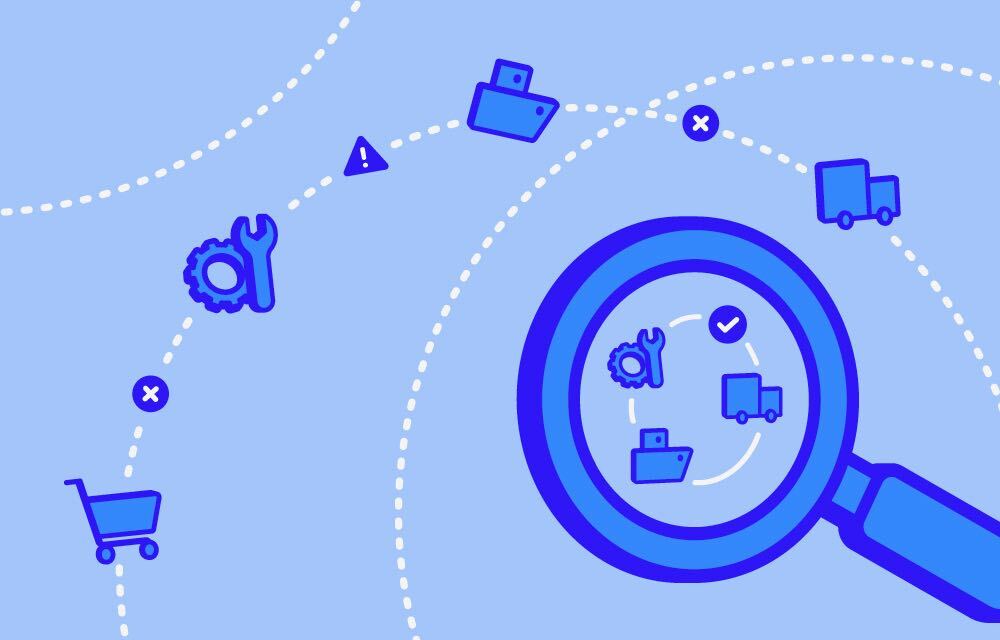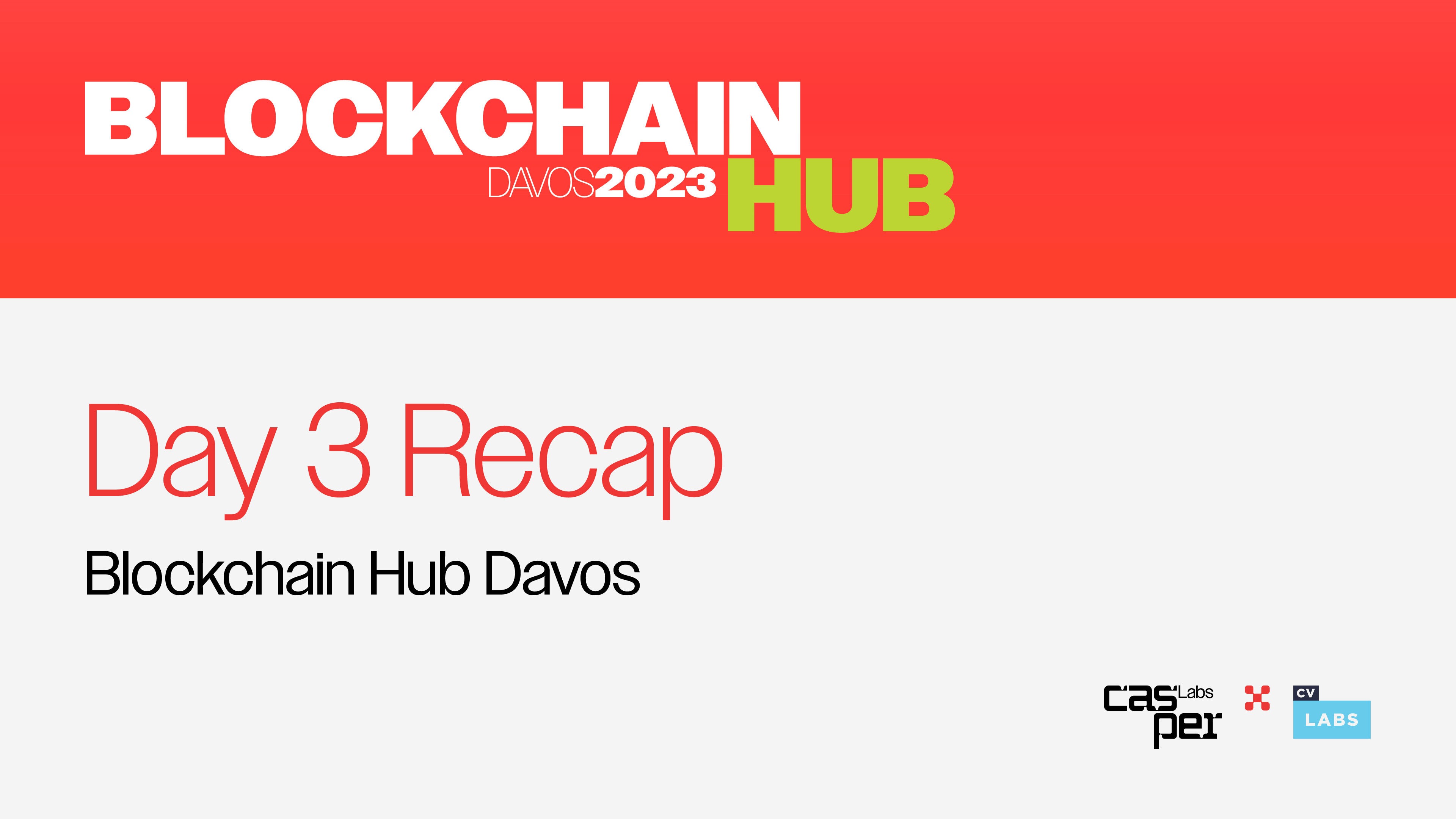Financial Services Companies Can Build Resilience With Tokenization
Matt Coolidge
SVP of Global Communications
Editor’s note: This article is a part of our content series, “Demystifying Blockchain,” where we explore how enterprise and government teams are using blockchain technology today. By dissecting real-world examples, we demonstrate the impact of the technology across industries and the value blockchain is bringing to all kinds of businesses. Read more from this series here.
The financial services sector is vast, encompassing fintech companies, banks, investment firms, insurance providers and more. It trafficks in some of the world’s most valuable – and sensitive – data. Its ability to monetize and secure it quite literally moves markets.
One of the most exciting aspects of blockchain’s emergence as a mainstream, additive technology has been its ability to help organizations create liquidity from previously illiquid assets. Tokenization has emerged as perhaps the single-most popular strategy for increasing liquidity, as it allows a given firm to open new access for individuals interested in trading and investing in a given asset – whether that’s real estate, patents or any number of “non-traditional” assets.
Originated as a means to protect customer payment data, tokenization works by assigning information a unique identifier, called a token. While tokens represent valuable information, they offer no value on their own. A common analogy is a poker chip: At a casino, it represents money, but anywhere else it’s simply a plastic coin.
By tokenizing data and other assets, businesses can effectively safeguard bank accounts, investments, contracts, policies, and much more information – all while realizing new monetization opportunities. And doing so in blockchain environments brings businesses even greater value, including increased trust (via immutable and transparent ledgers), asset liquidity, and operational efficiency, thanks to how much of the process can be automated. This trend is catching on: a fast-growing market, the global tokenization market size is projected to reach $5.6 billion by 2026 alone. And with a compound annual growth rate of 19%, this is just the beginning.
3 Ways Blockchain Strengthens Tokenization
Many types of financial services institutions have already begun to take advantage of tokenization. Credit card companies, for example, can tokenize a customer’s account number by removing it from internal records, and replacing it with a randomly generated and unique placeholder. This protects the cardholder’s information from potential fraud during commerce transactions.
If hackers get access to the token, they won’t actually be able to access the customer's account. This is known as vault tokenization. It’s one of the early types of tokenization, developed before blockchain technology emerged to offer additional benefits, such as ownership protection.
Today, blockchain provides businesses with a foundation on which tokens can be securely created, stored, traded, and exchanged. By storing and tokenizing customer data on blockchain technology, financial services organizations can transform their operations in three key ways:
- Tokenizing data helps businesses secure customer information. Creating tokens on a blockchain network increases security thanks to its distributed nature. Because each piece of data is stored on an individual block that connects through a cryptographic chain, it’s impossible to tamper with the information. And unlike data stored in the cloud or on a server, information stored on blockchain technology is independently validated by designated users on the network, meaning each transaction is proven to be legitimate.
- Tokenizing assets on blockchain helps financial services companies build greater liquidity. For example, real-world assets like gold have a high dollar value, but only a percentage of these assets are liquid. That’s because in order for real-world assets to have liquidity, ownership stake needs to be distributed. By tokenizing gold on blockchain, companies can easily trade its value in an open market.
- Relinquishing dependence on third-parties enables businesses to operate more efficiently. When new assets, like gold, real-estate, or financial contracts, are tokenized and stored on blockchain, investors can release their dependence on brokers or third parties, which are traditionally required for trading. This means, financial services businesses can execute processes faster and cheaper than ever before.
Tokenization in practice
Nucleus Finance is a financial services company that pulls client investments and savings into one place for easier managing and tracking. A core element of their business is creating financial contracts, a cornerstone of the financial services industry that defines payment exchanges. But today, financial contracts are thick documents that are time consuming to compile.
That’s why Nucleus Finance partnered with Casper Labs to build a Tokenization as a Service (TaaS) solution on Casper Blockchain. The solution translates financial instrument data, including stocks, ETFs, real-estate investment trusts, and more, into ACTUS Smart Financial Contracts. The result is a native financial digital asset that’s machine readable, which means Nucleus can deliver faster trading and settlement times for its clients.
A better positioned industry
The financial services sector faces many challenges today, from the pressure to grow despite economic uncertainty, to digital transformation urgency, and increased security threats. As such, organizations must not only protect themselves against unnecessary risks—breaches, non-compliance, etc—but also find ways to identify new value streams.
With tokenization on blockchain, businesses can not only safeguard their most valuable assets with secure technology, but also unlock opportunities to innovate, increase efficiency, and enjoy more operational freedom. The result? Blockchain technology and tokenization infuse resilience into the financial services sector.
Learn more about how financial services firms and more are driving radical new efficiencies on the Casper Blockchain.
![[Report] State of Enterprise Blockchain Adoption 2023 | Casper Labs](https://casperlabs.io/hubfs/Imported_Blog_Media/Blog-StateofEnterprise-jpg-1673554558669-1.jpg)

